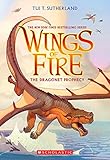A starting place for developing Executive Functioning skills.
http://developingchild.harvard.edu/resources/activities-guide-enhancing-and-practicing-executive-function-skills-with-children-from-infancy-to-adolescence/
Suggested citation: Center on the Developing Child at Harvard University (2014). Enhancing and Practicing Executive Function Skills with Children from Infancy to Adolescence. Retrieve from www.developingchild.harvard.edu.
Executive Function Activities for 18- to 36-month-olds
“During this stage of development, children are rapidly expanding their language skills. Language plays an important role in the development of executive function and self-regulation (EF/SR), as it helps children identify their thoughts and actions, reflect on them, and make plans that they hold in mind and use. Language also helps children understand and follow increasingly complex rules—both those that regulate behavior and those that apply to simple games. Additionally, bilingualism is associated with better EF/SR, so parents who are fluent in more than one language should use those languages with their children.”
Executive Function Activities for 3- to 5-year-olds
“Children’s executive function and self-regulation skills grow at a fast pace during this period, so it is important to adapt activities to match the skills of each child. Younger children need a lot of support in learning rules and structures, while older children can be more independent. Ultimately, the goal is to shift children away from relying on adult regulation, so when the child seems ready, try to reduce the support you provide.”
Executive Function Activities for 5- to 7-year-olds
“Games can exercise children’s executive function and self-regulation skills—and allow them to practice these skills—in different ways. At this age, children start to enjoy games that have rules, but do so with widely varying levels of interest and skill. Since an important aspect of developing these skills is having a constant challenge, it’s important to choose games that are demanding but not too hard for each child. As the child players become familiar with these games, try to decrease the adult role as soon as possible; the challenge is greater for children if they remember and enforce the rules independently. Just be prepared with some techniques for negotiating conflict. Flipping a coin or drawing a straw are some methods used by Tools of the Mind, an early education program designed to build self-regulation.”
Executive Function Skills into Adulthood
http://developingchild.harvard.edu/resources/using-brain-science-to-create-new-pathways-out-of-poverty/
15 Minute Video on the importance of Executive Function for adults looking for work. “Poverty Effects our Executive Functioning skills.”








